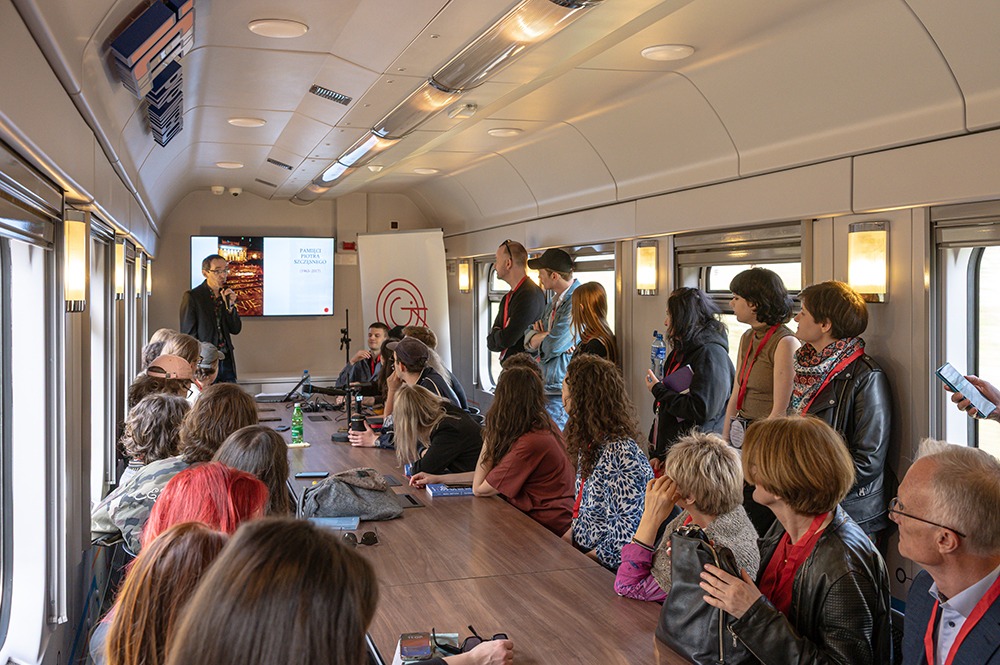On 15 April 2025, Prof. Grzegorz Ziółkowski gave a guest lecture as part of the Lamentations (Lamentacje) Theatre Festival organised by the Polish Theatre in Warsaw and the Grotowski Institute in Wrocław. The lecture, “Solidarity in Action: The Aftermath of Self-Immolation as Exemplified by the Protest of Sebastián Acevedo (Chile, 1983)”, took place in a special conference carriage of the Liberation (Wyzwolenie) Festival Train travelling from Warsaw to Gdańsk.
The lecture is one of the results of the author’s research project titled “The Performative Realm of ‘Colonia Dignidad,’ a German Enclave in Chile, in Historical and Political Contexts” (Performatywna strefa „Kolonii Godności”, niemieckiej enklawy w Chile, w kontekście historycznym i politycznym), financed by grant no. 2021/43/B/HS2/00360 from the National Science Centre (Narodowe Centrum Nauki, NCN) under its OPUS 22 Programme.
Abstract: On 11 November 1983, Chilean worker Sebastián Acevedo Becerra set himself on fire in Concepción, demanding the release of his daughter and son, who had been abducted more than two days earlier by the CNI, Augusto Pinochet’s notorious intelligence service. Although Acevedo was acting on behalf of his children, his desperate act became a symbol of the suffering of all those whose loved ones disappeared without trace during the Chilean civil-military dictatorship (1973–1990). Shortly after this dramatic event, a group of activists added his name to the name of the pacifist Movement Against Torture (Movimiento Contra la Tortura), which they had founded in August 1983. The self-immolation also inspired the creation of the Women’s Movement for Life (Movimiento Mujeres por la Vida). By the end of the dictatorship, both organisations carried out dozens of peaceful and pro-democracy protests, expressing their opposition to the military junta’s brutality and their solidarity with the detained disappeared (detenidos-desaparecidos), their families and friends. The lecture reflected on the aftermath of self-immolation as the most radical form of protest and asked questions about the effectiveness of such actions.

Courtesy of the Grotowski Institute
